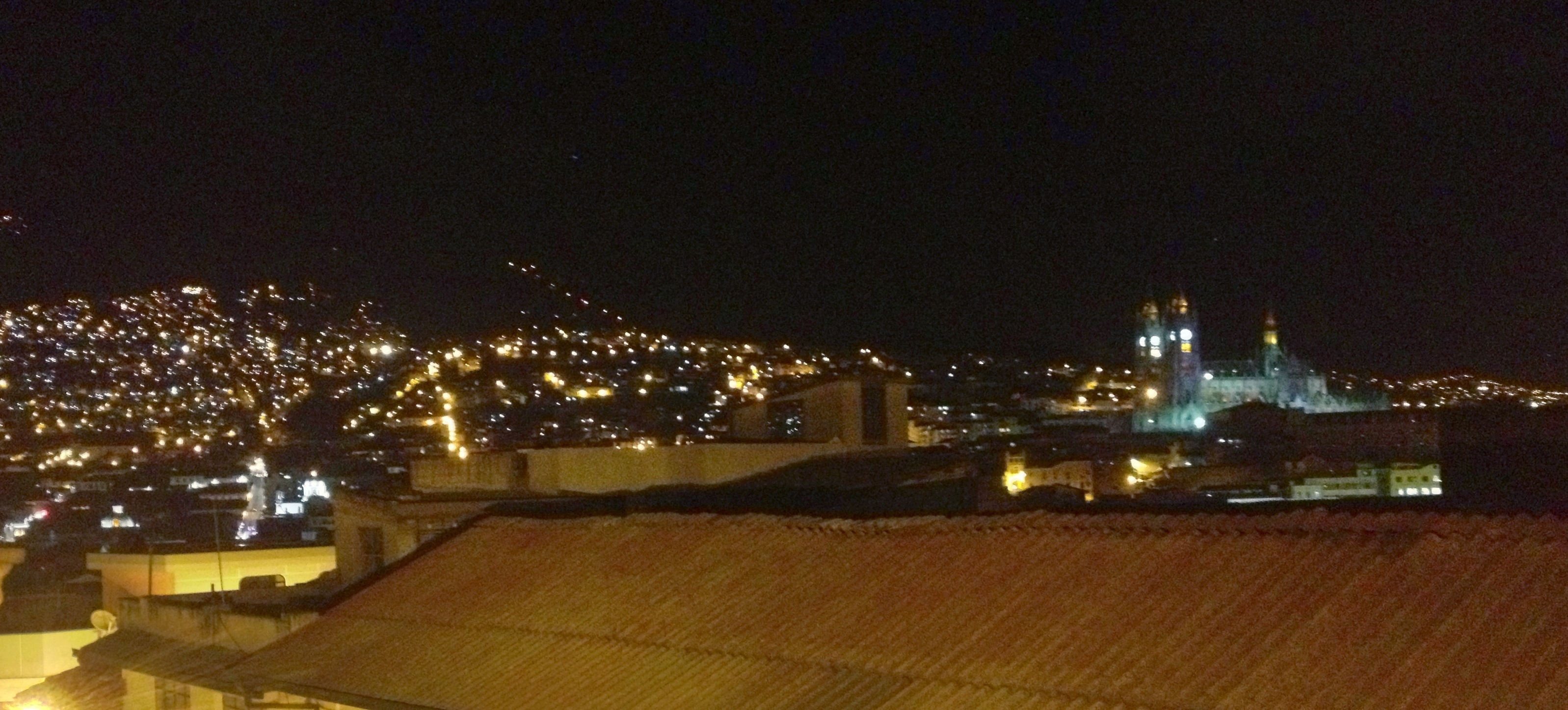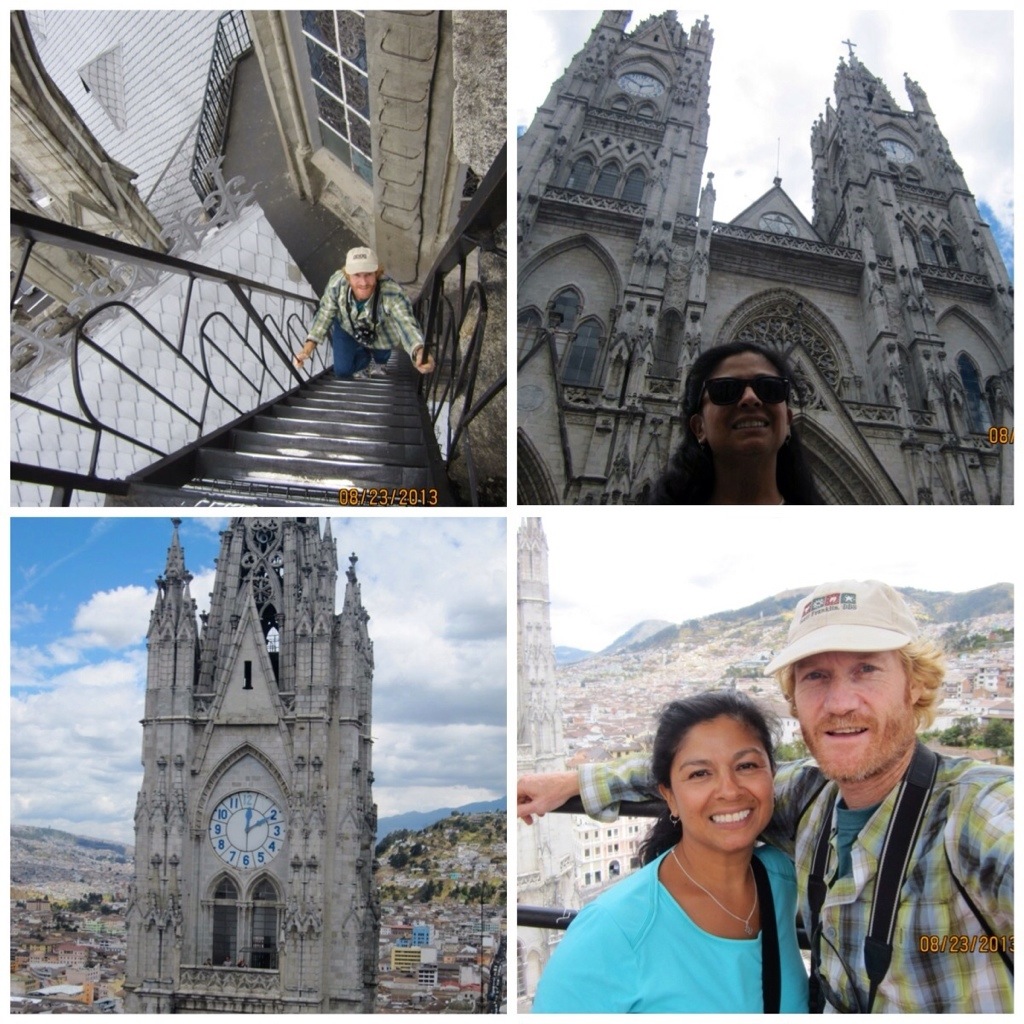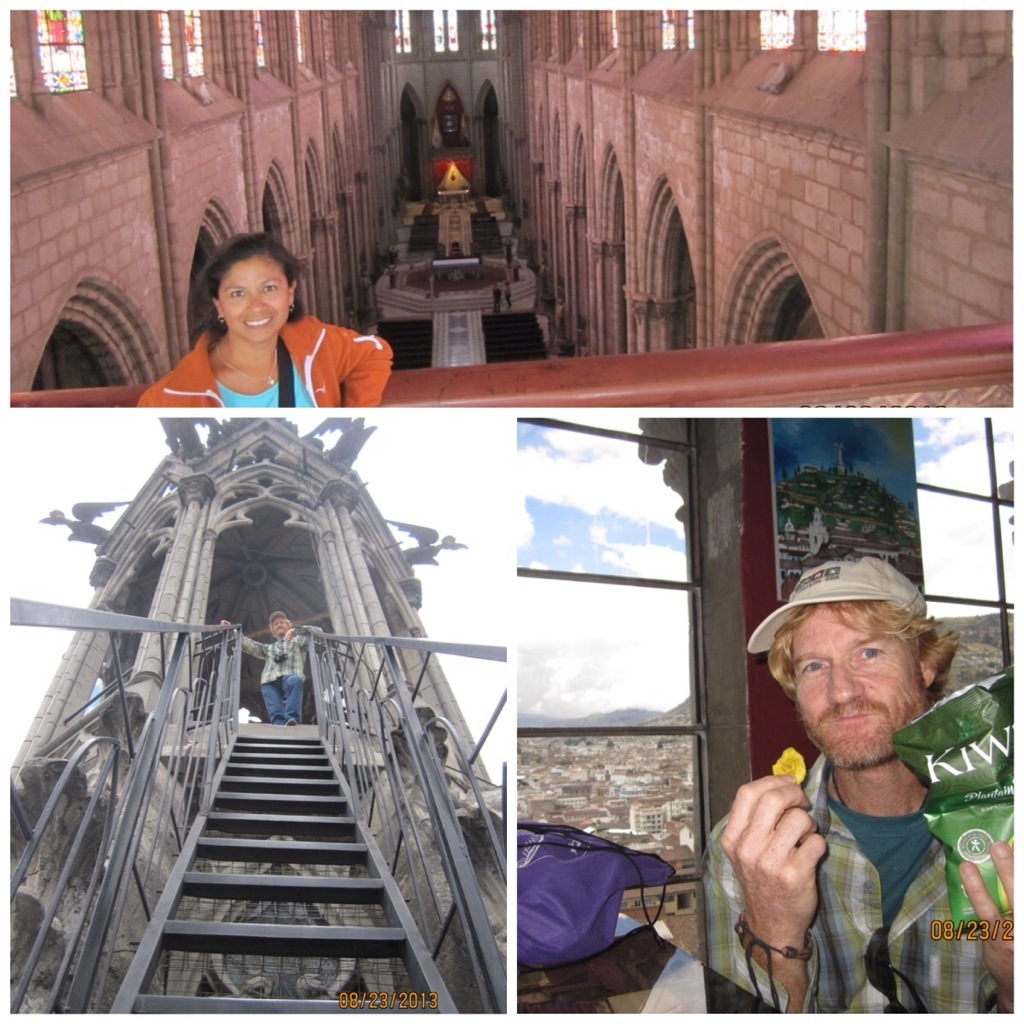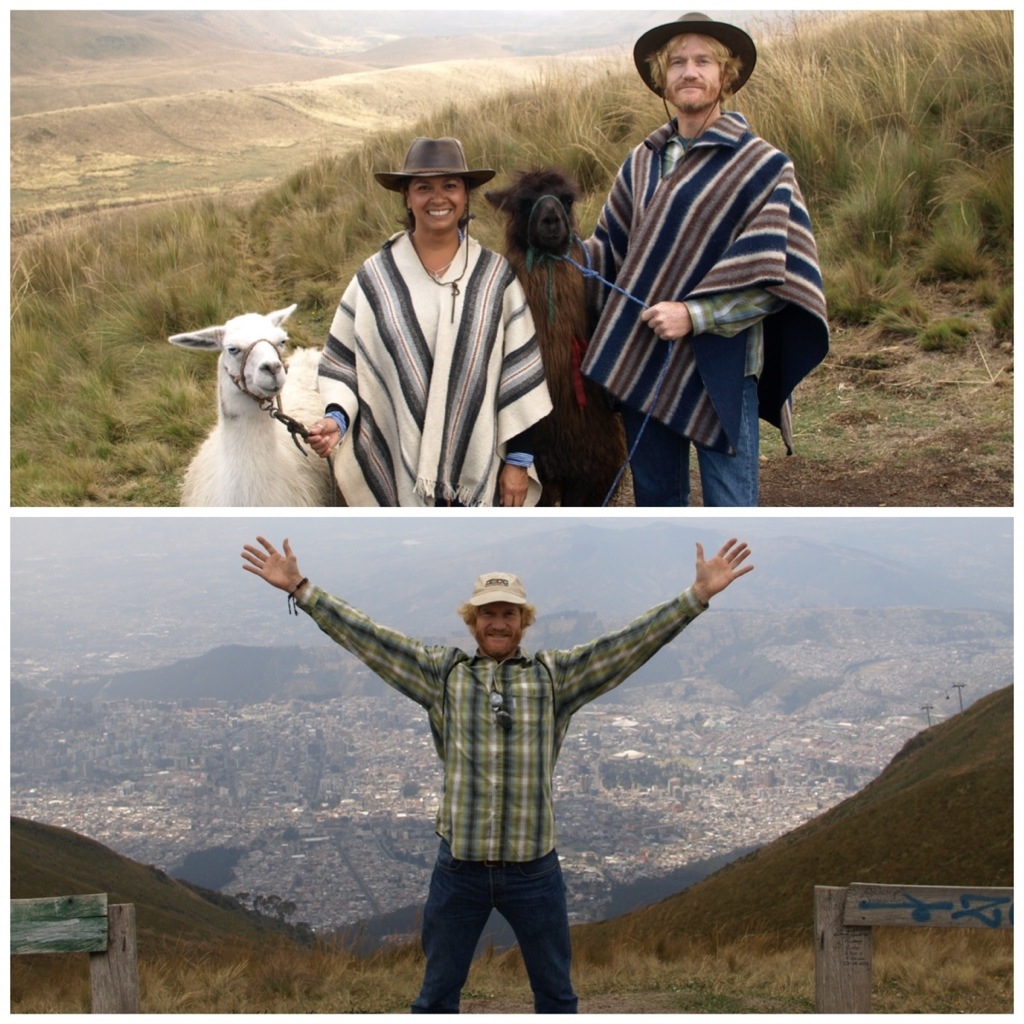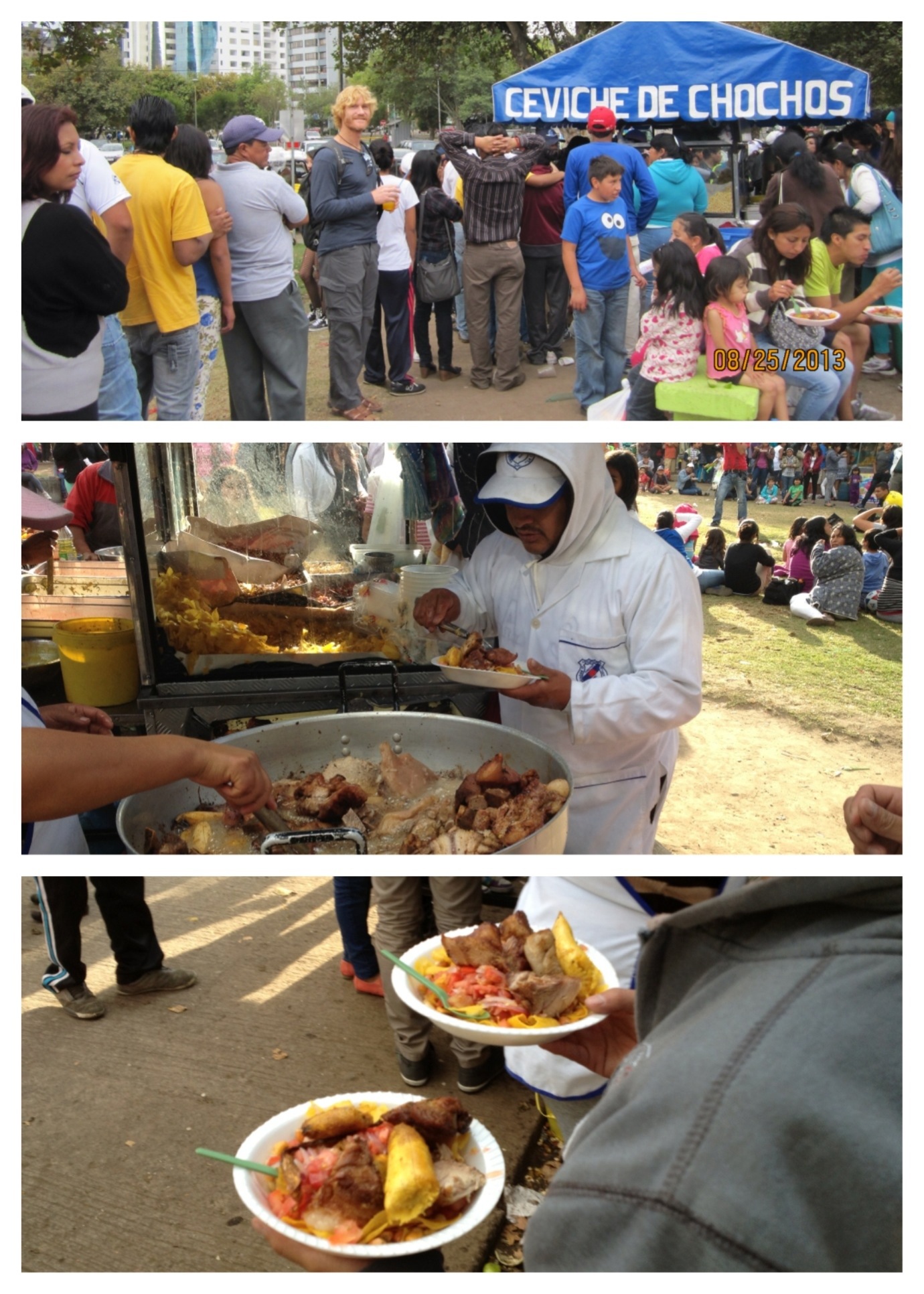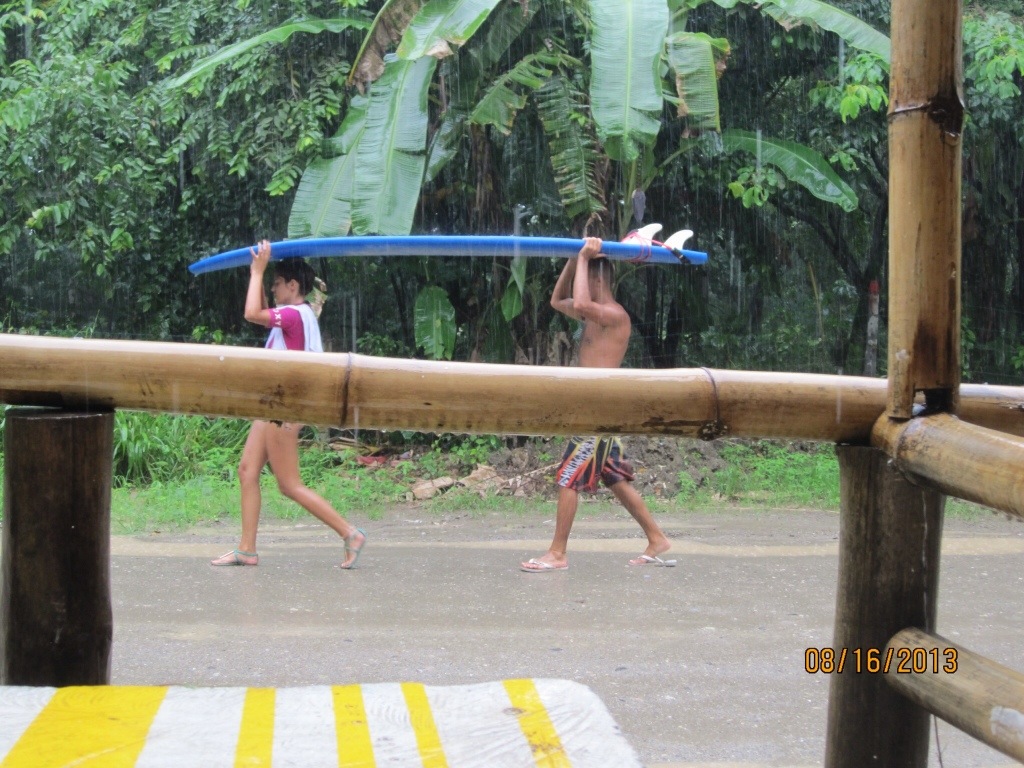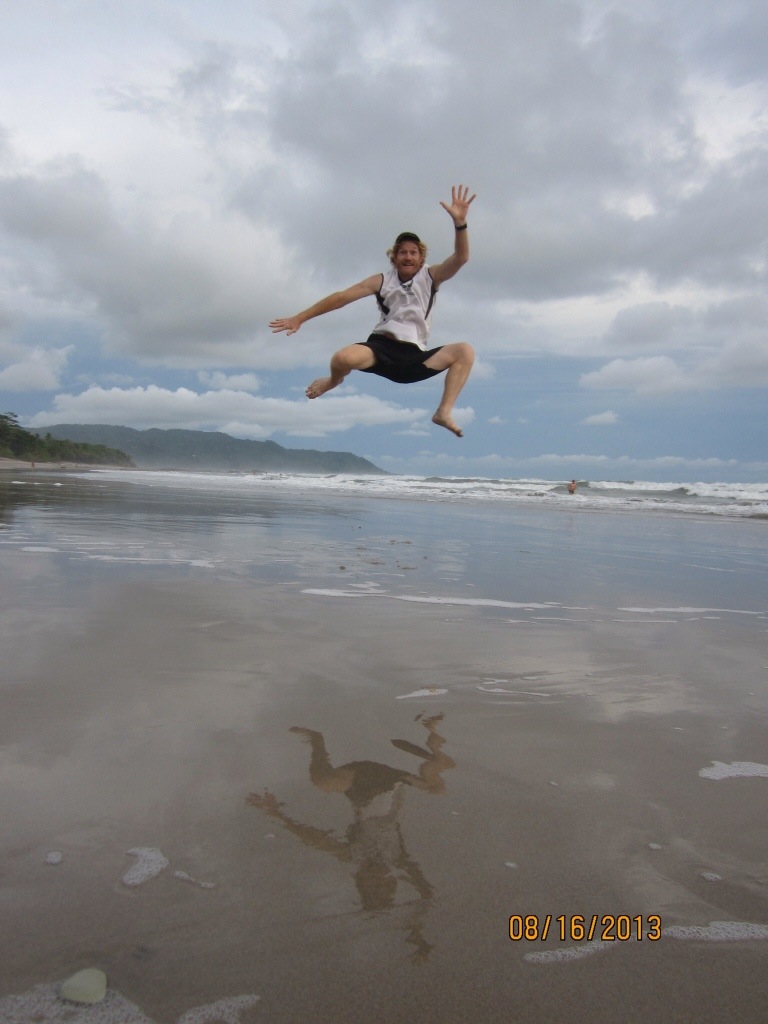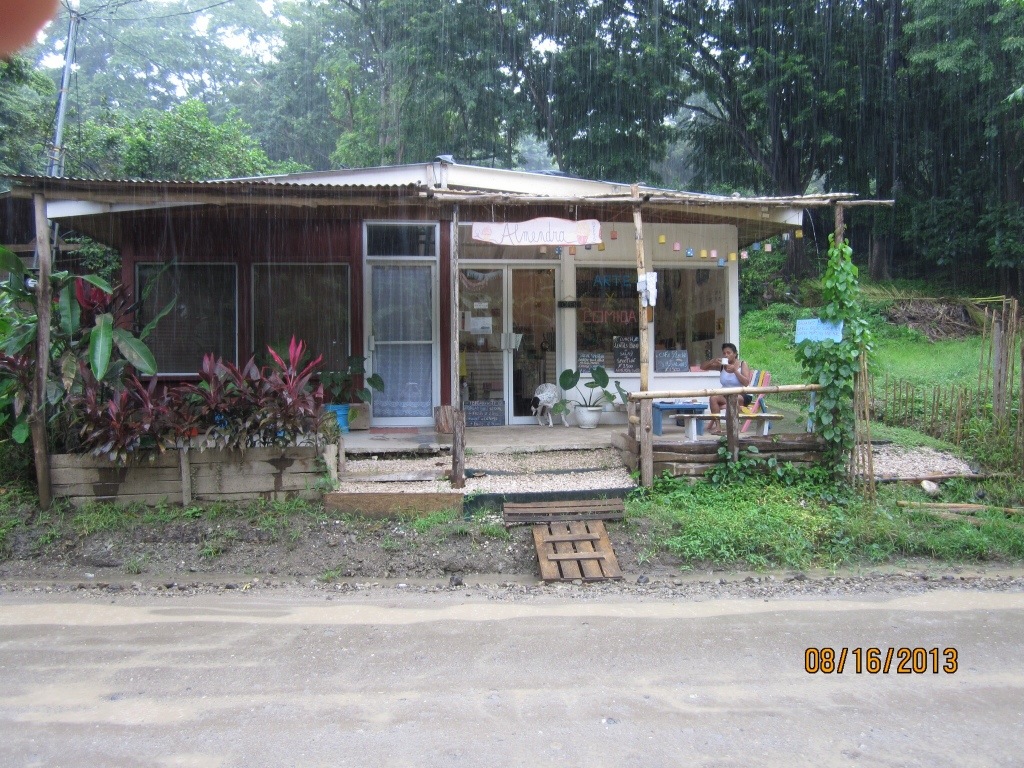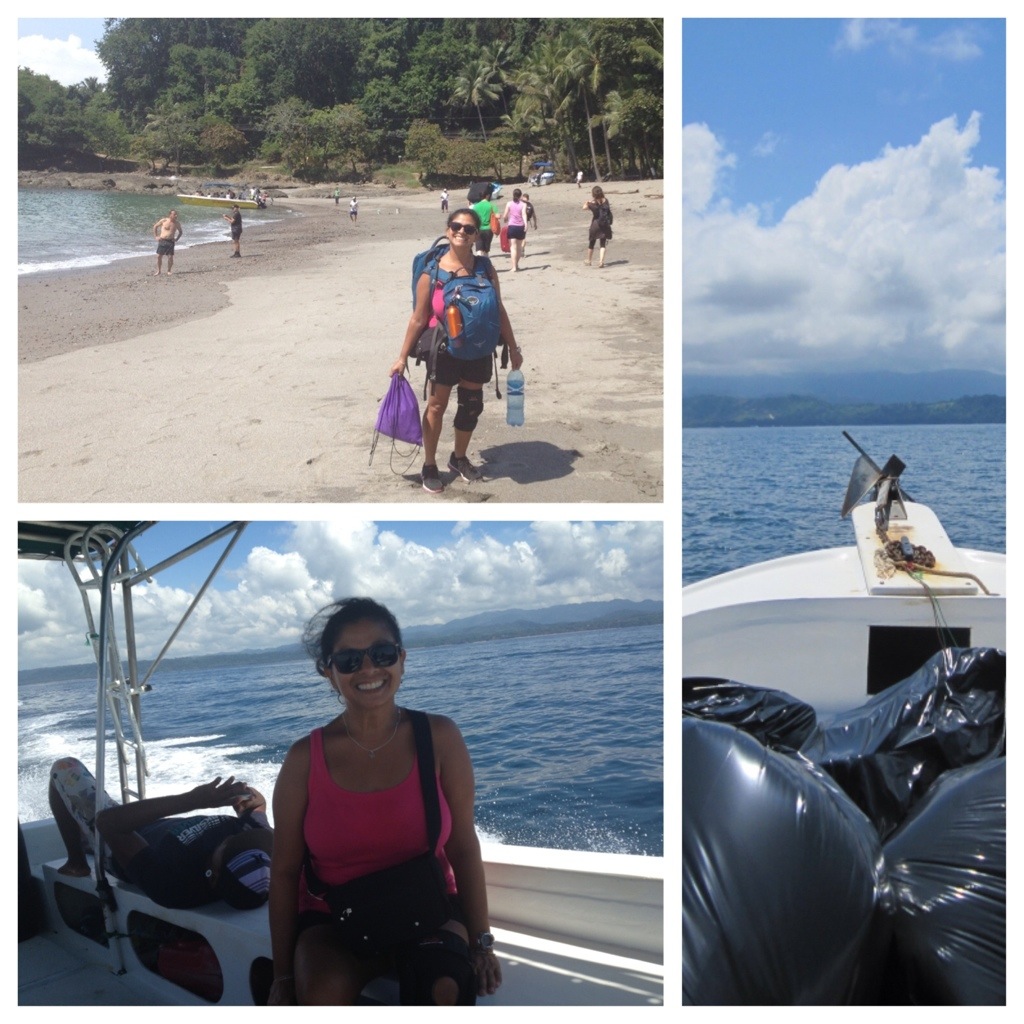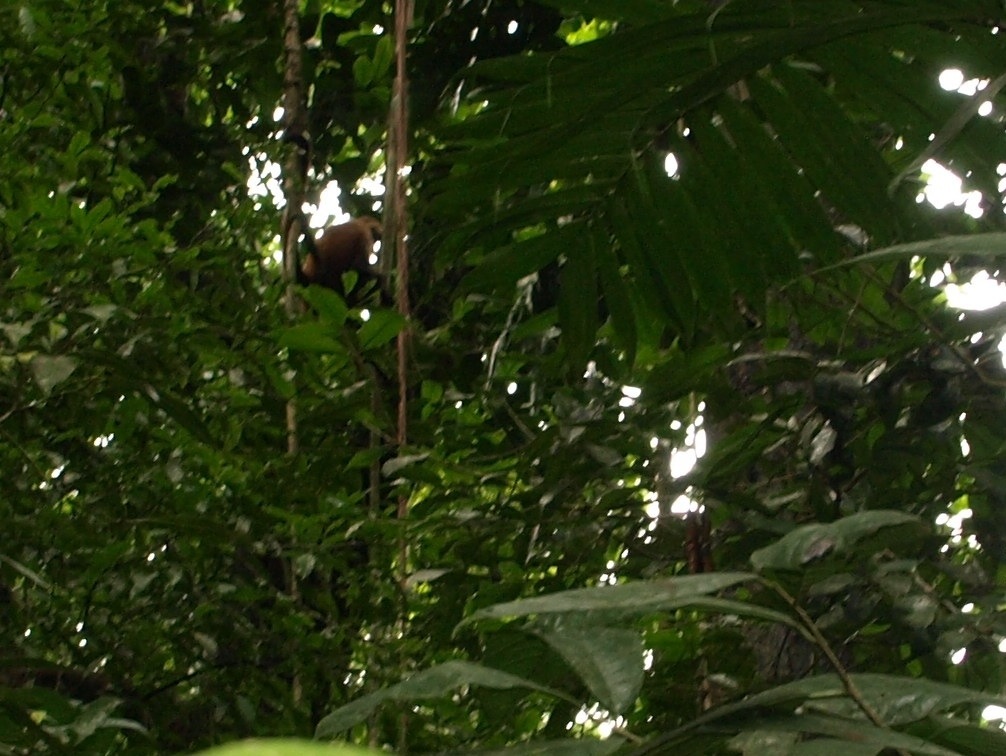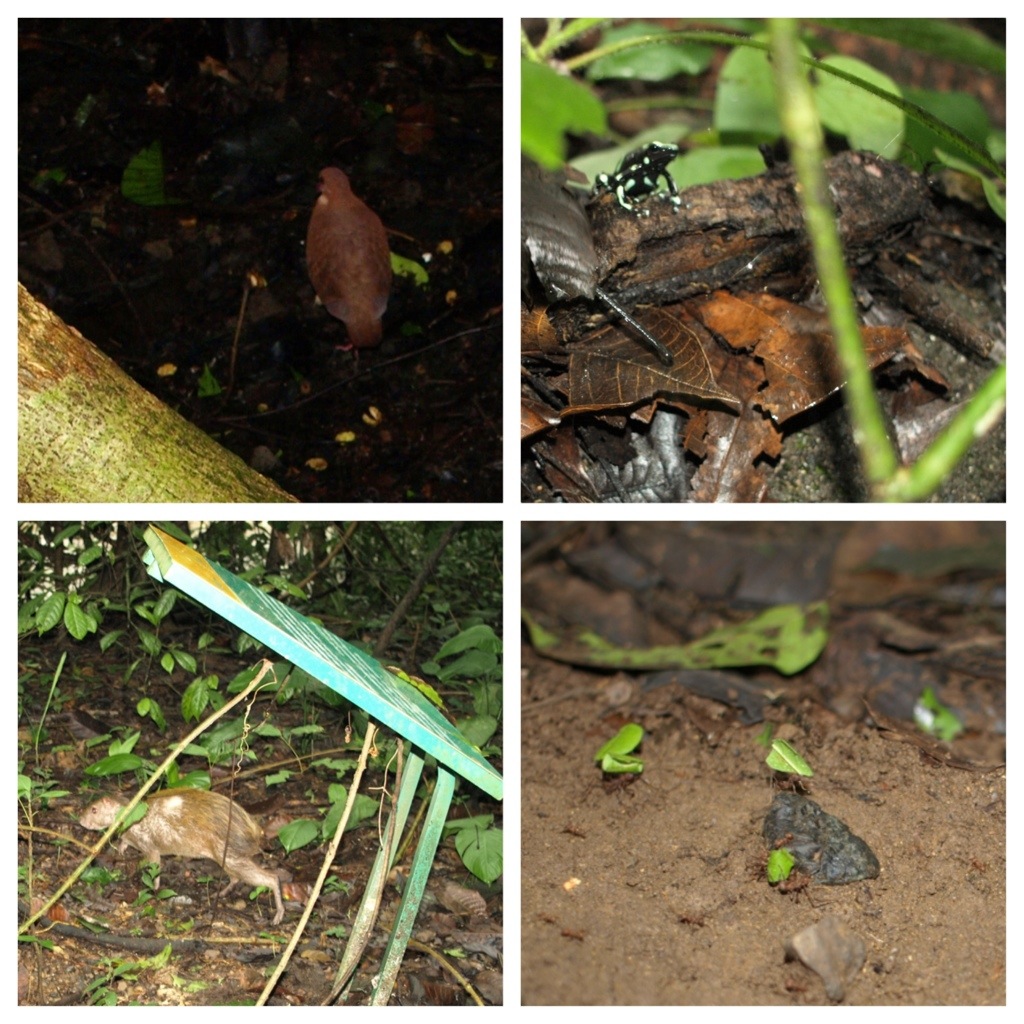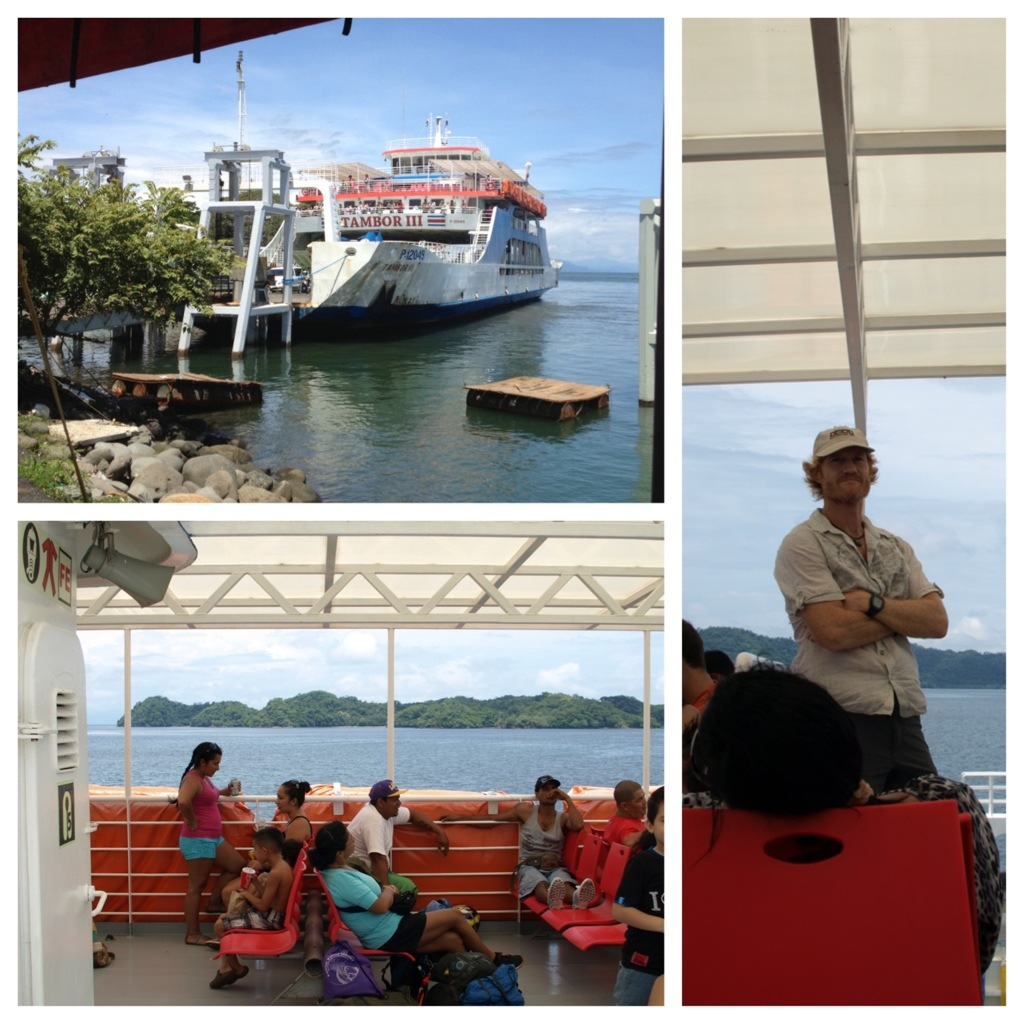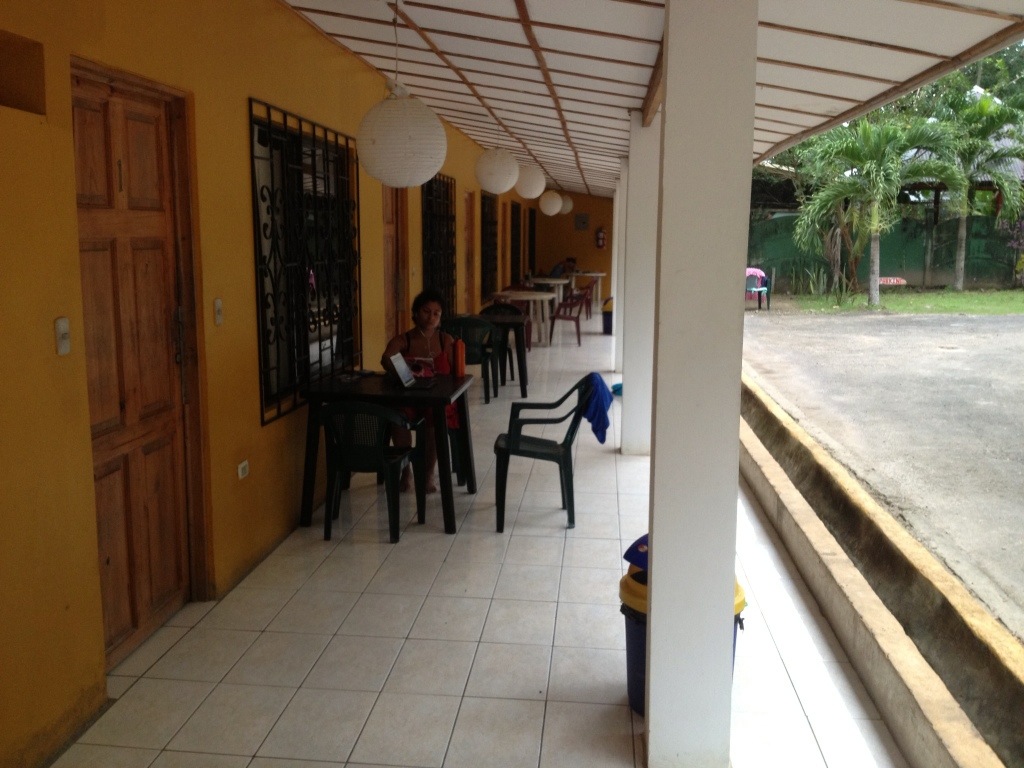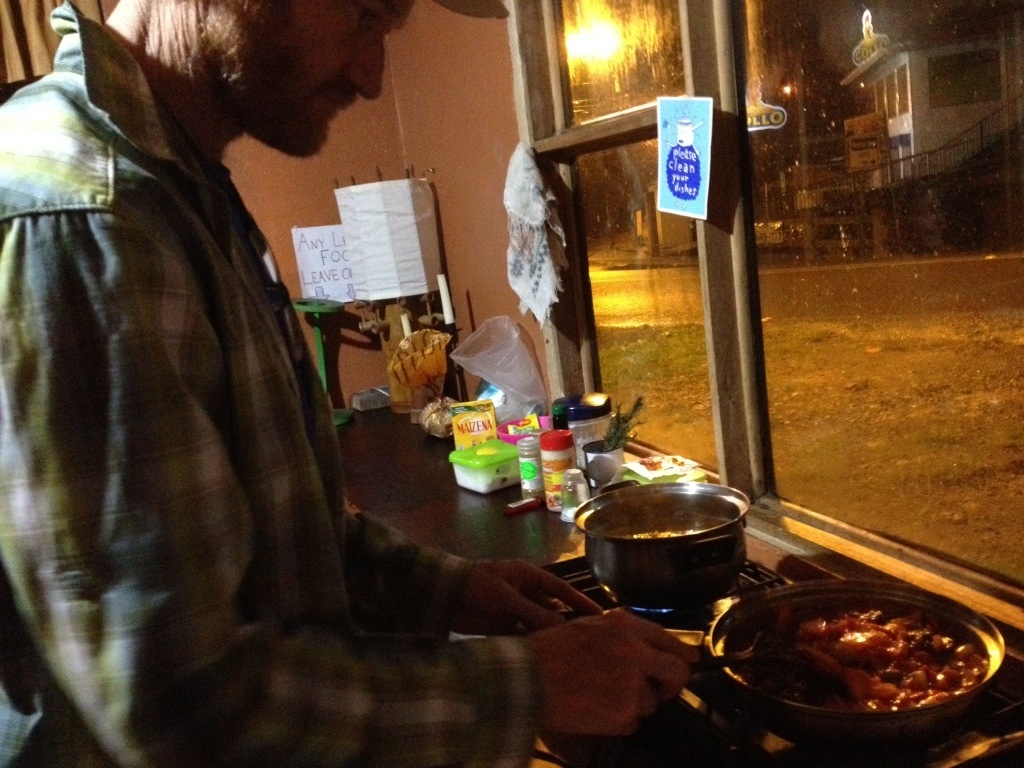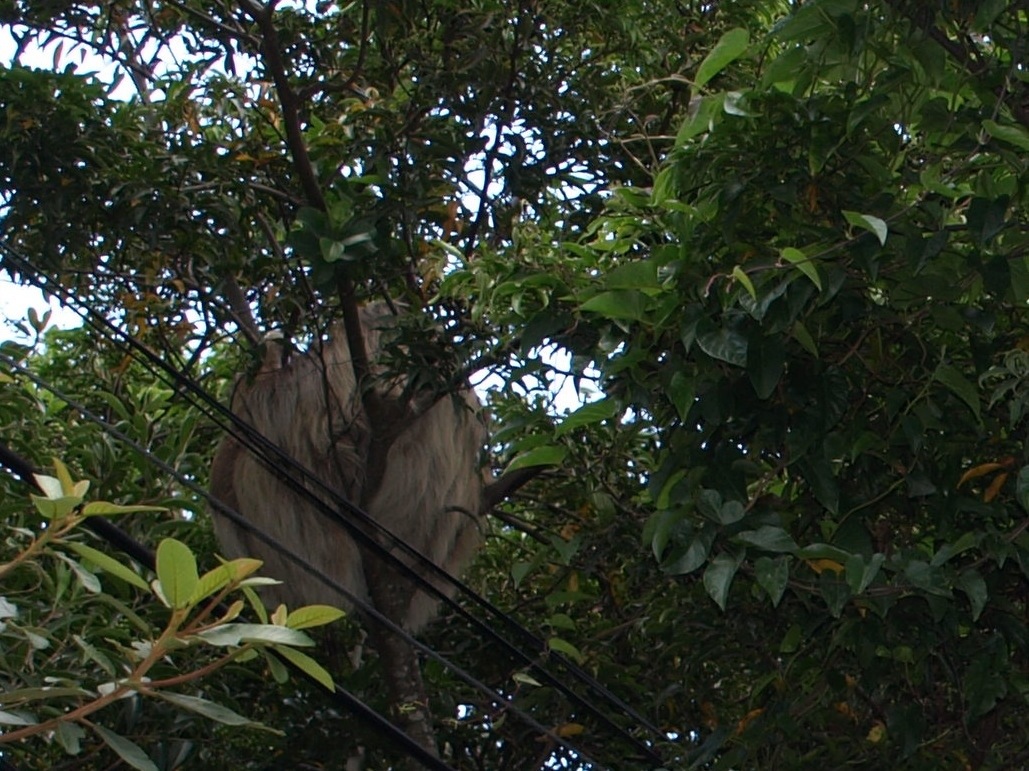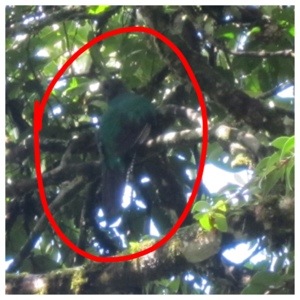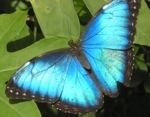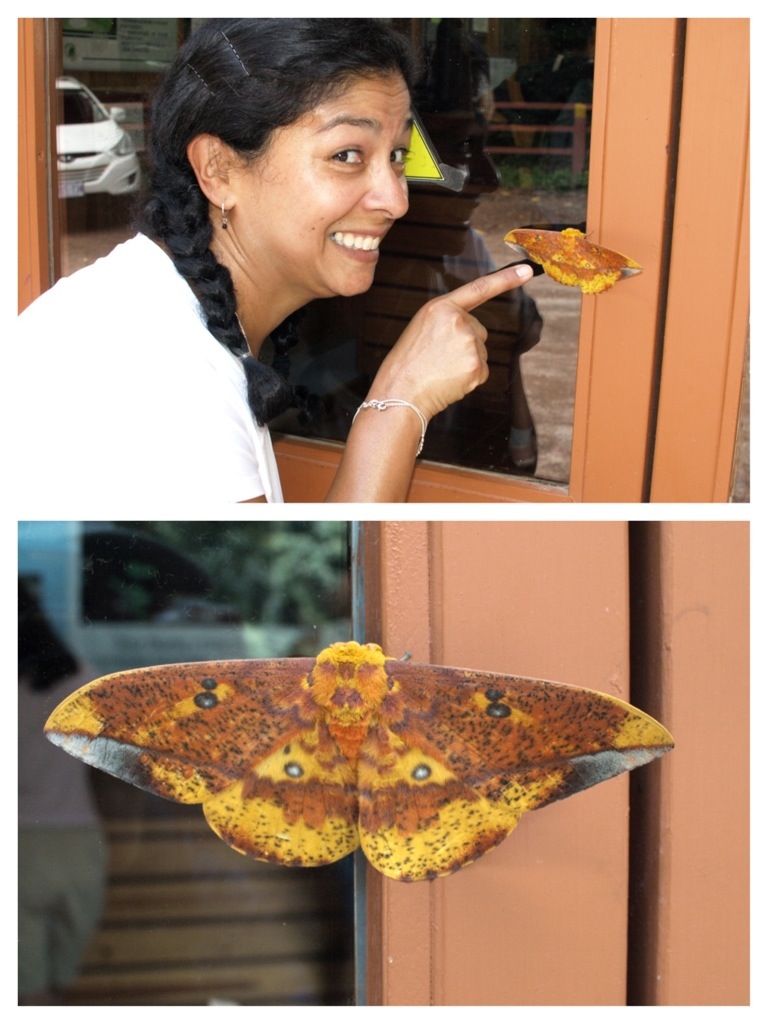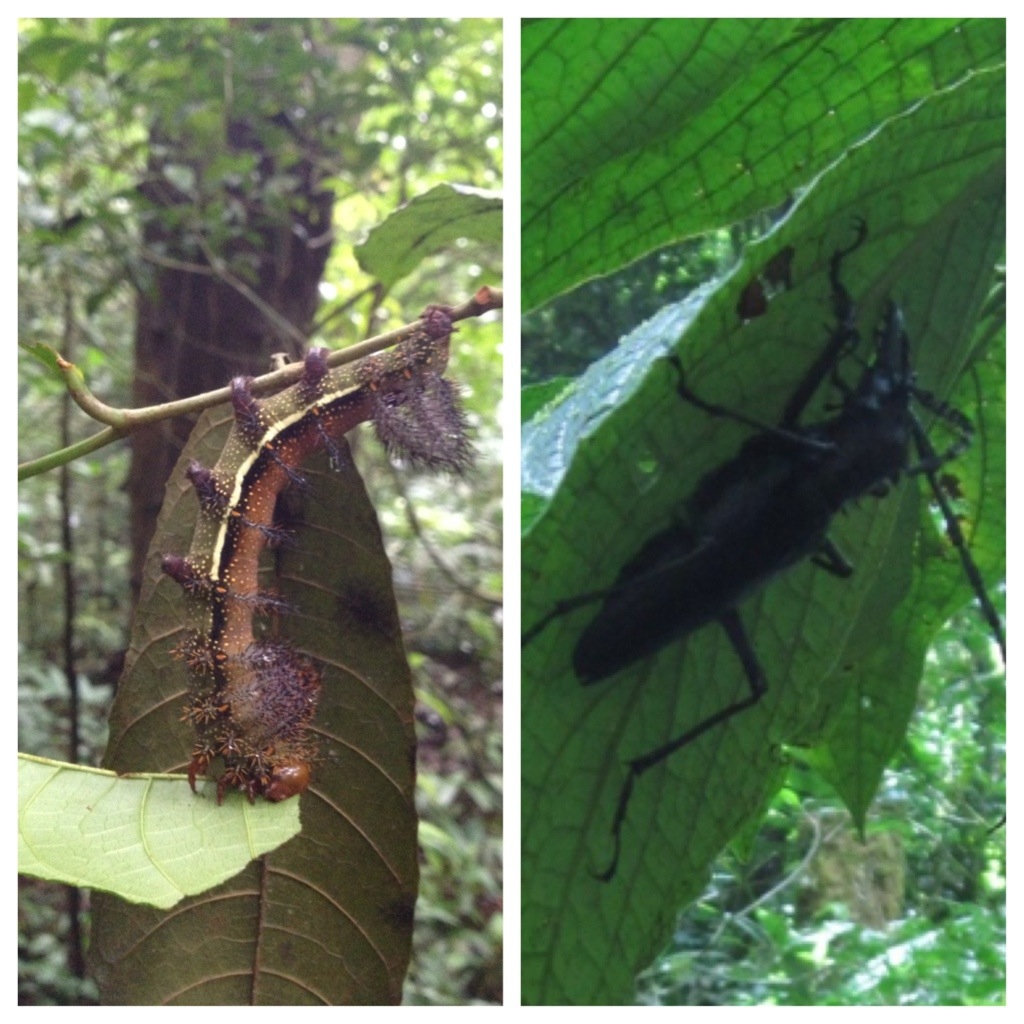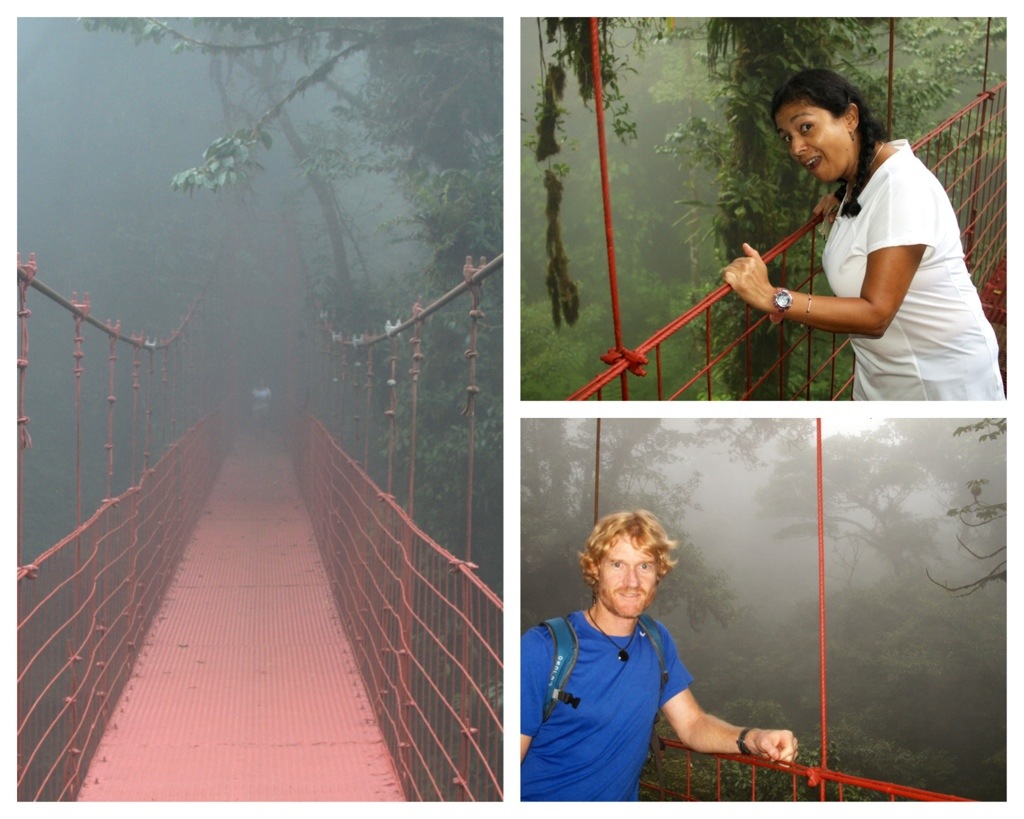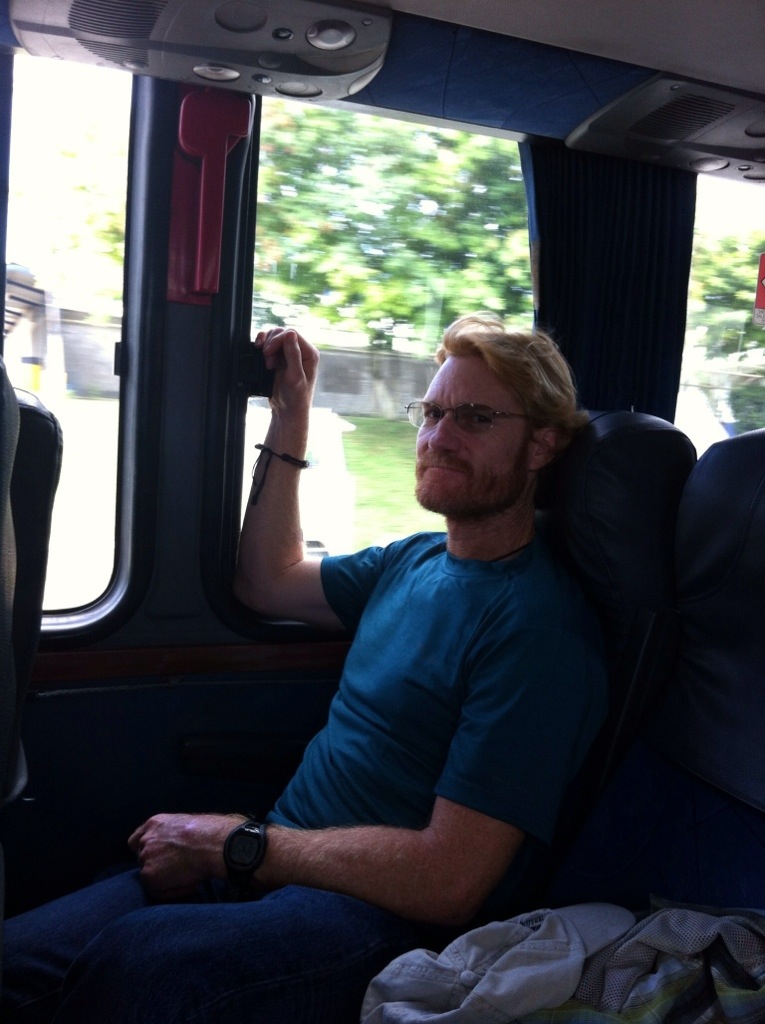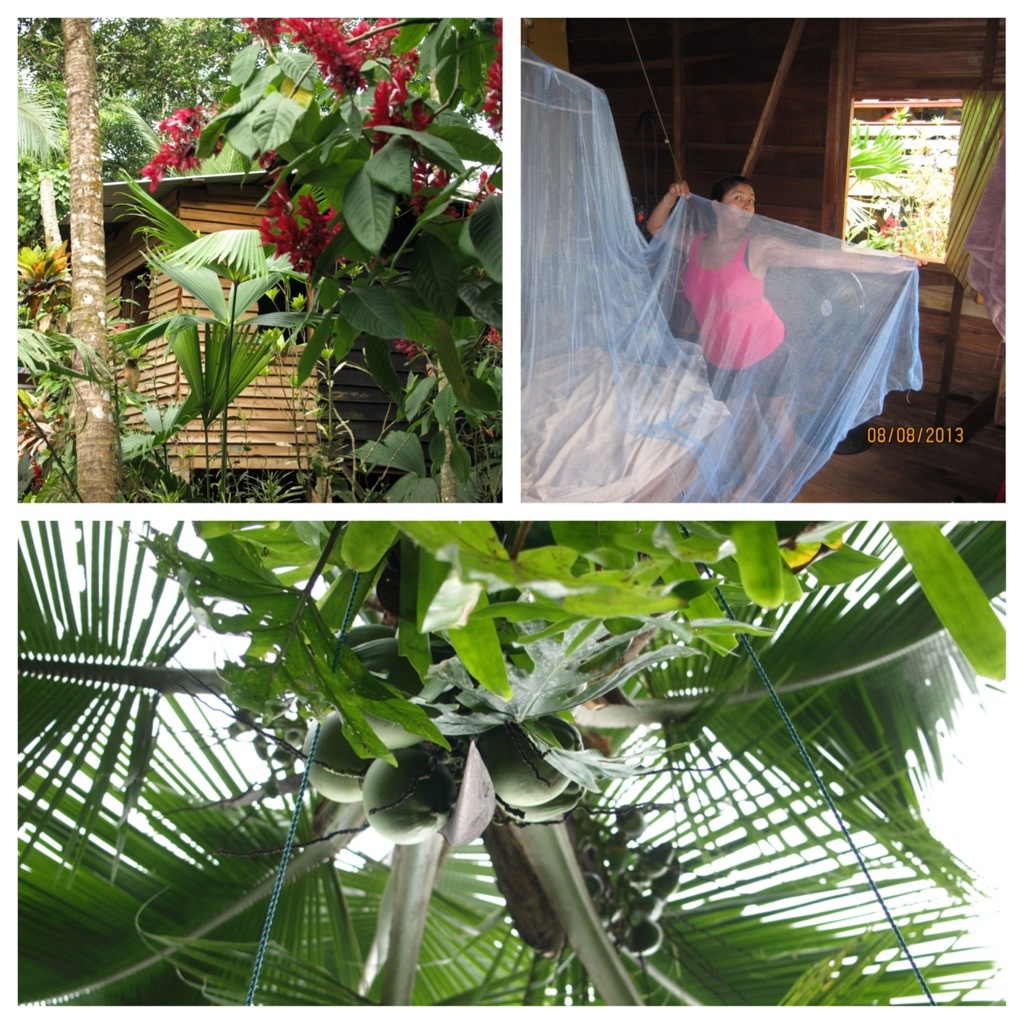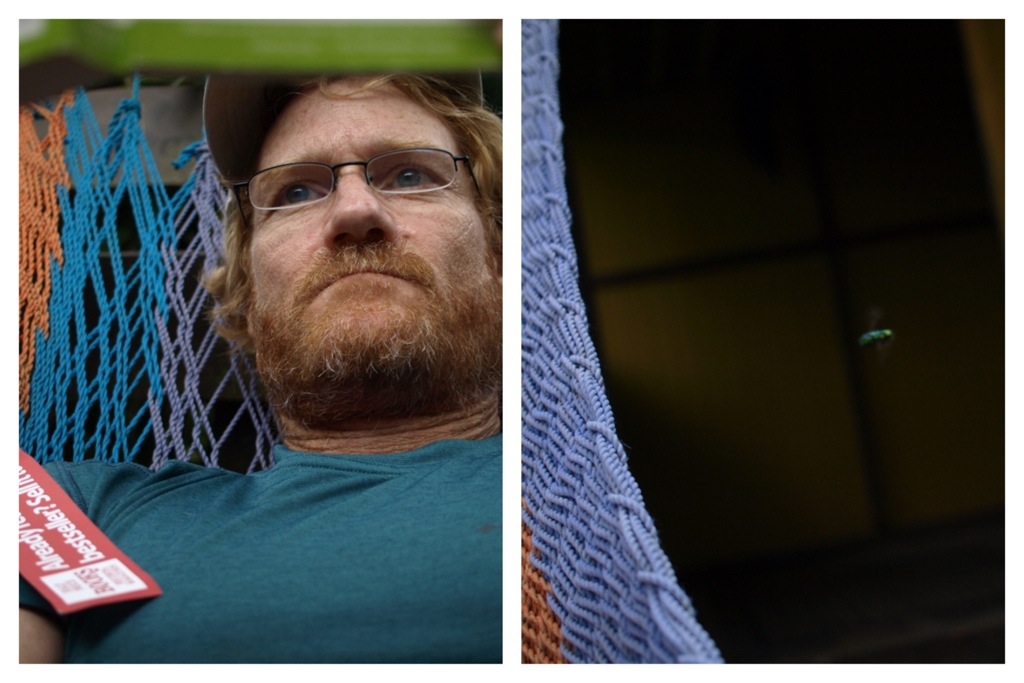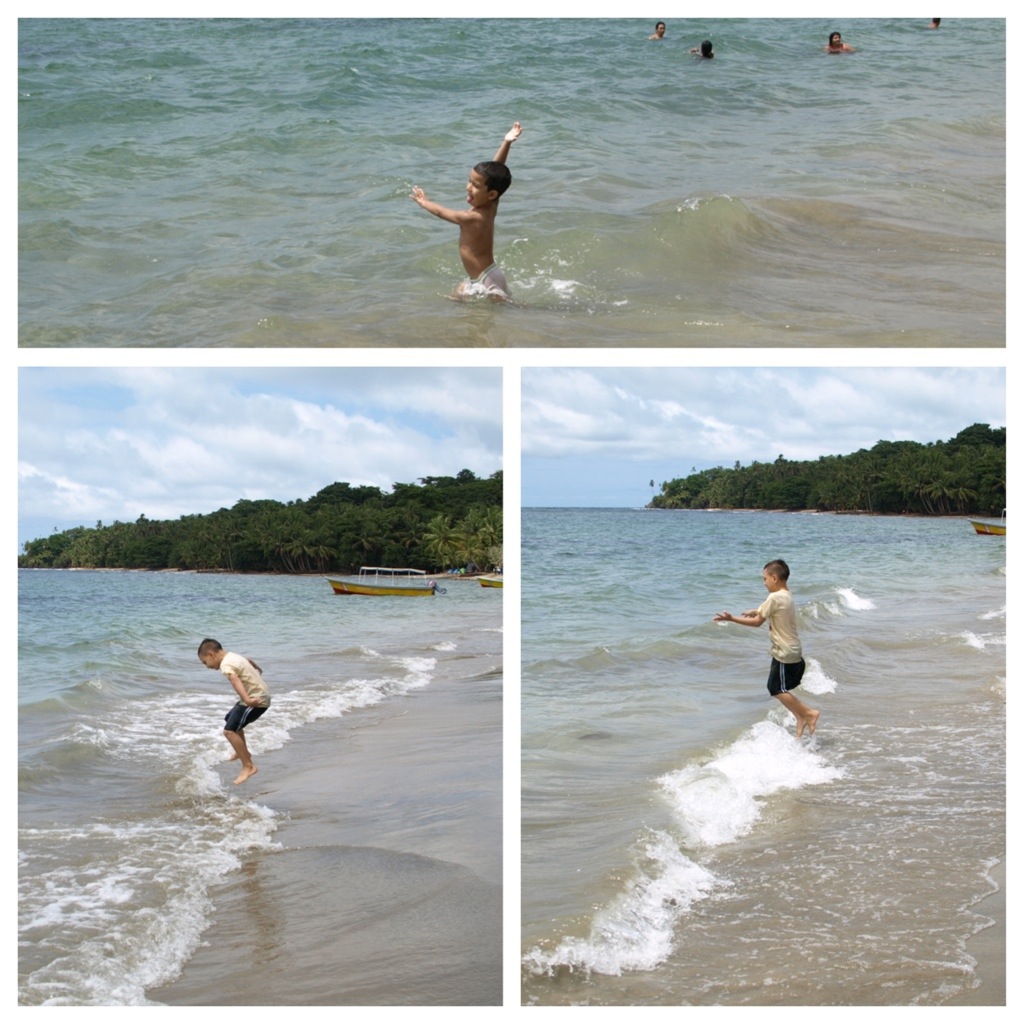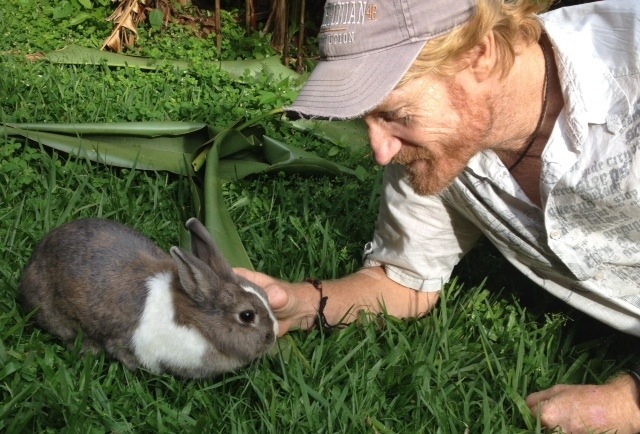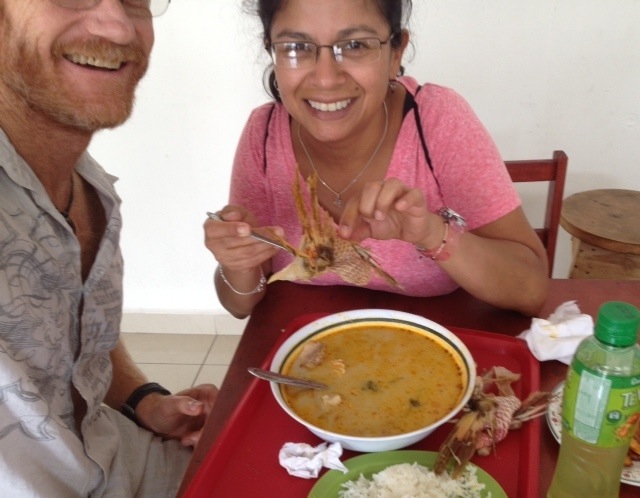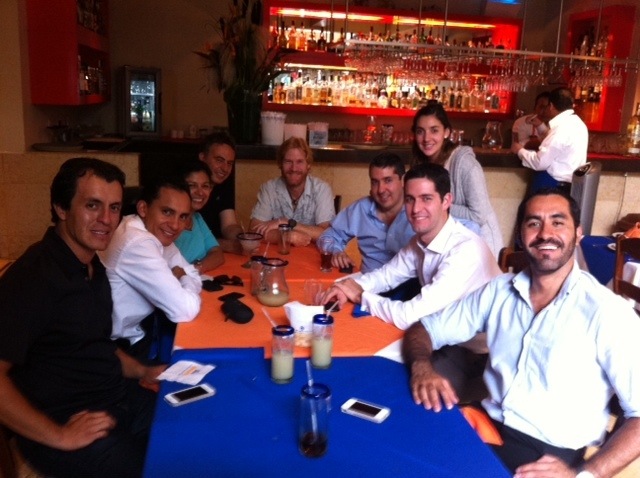(Quito, Ecuador – 25 August 2013) I could see it in Jessica’s eyes, she was apprehensive and full of nervous energy as we flew from Costa Rica to Ecuador. Traveling to Costa Rica was a snap- it seems like everyone goes to Costa Rica -but Ecuador? Who goes to Ecuador?
First Impressions
It was late afternoon when our plane lowered itself into the large valley that holds Quito in its palm. From one end of the valley to the other, Quito sprawled like Houston. Buildings crept part-way up the valley walls and even dropped inside a deep ravine that snakes right through the middle of Quito. Humanity was intent on occupying every nook and cranny of this spectacular landscape.
We spotted snow-capped peaks in the distance as the flight crew announced Quito’s local time and temperature during our approach. It was 23 degrees in Quito! Relax, people….that’s Celsius. I did my best to remember the conversion formula to Fahrenheit and came pretty close (double the number in Celsius and add 32); it was about 74 F. Hmmm, but shouldn’t it be hot near the equator? It sure can be, but not at an altitude of 9,350 feet. Turns out that Quito has the second highest elevation of any capital city in the entire world (only La Paz, Boliva sits higher).
Quito’s cool air felt phenomenal to us. So much of our time in Costa Rica was spent covered in sweat. We were loving Quito already and we hadn’t even left the airport.
Every time we arrive into a new country, we know there is going to be that inescapable struggle getting from the airport to our hostel. At least at the Quito airport we were smart enough to stop at their information kiosk. And fortunate enough to talk to someone that gave us super clear directions. We were also handed a couple of little touristy booklets and a map of Quito that we have found very helpful. So far Quito, Ecuador was doing everything right.
It took us about 1 1/2 hours to get to our hostel from the airport. While it was dusk when we started our transport, it was thoroughly nighttime as our cab driver dropped us off near the hostel. Unsure of our surroundings, we were the strangers in a strange land. Our large and awkward backpacks told everyone, “we’re foreigners,” though this worked to our advantage as a nice man from the neighborhood pointed us in the direction of our hostel, which wasn’t easily visible from the street.
A staff person at the hostel checked us in and showed us to our room on the 3rd floor. The high altitude had us huffing and puffing up those stairs. It was just two flights, but OMG…we were all drama by those last few steps. At least the reward for our efforts was a beautiful room. Hostel rooms are like a box of chocolates, you never know… Here we’d stumbled upon the best room of our trip so far. And the view from our tiny balcony was postcard perfect, too– Quito’s Catholic Basilica was beautifully lit up at night and the rest of the city sparkled all around it. Jessica’s apprehension was giving way to excitement.
Once we were settled into the room, our attentions turned towards food. The day had nearly passed and all we had eaten were the box-lunches served on the planes. (Yes, non-US airlines still serve you meals at no charge). We were now ready for something more substantial. It was suggested we walk to a small cafe just a couple of blocks away. Small cafe was right; we accidentally hit someone inside when opening the door to enter. All of the 5 or so tables were full as were the 3 spots at the counter. We only had to pause a beat, however; a two-top cleared quickly and Jessica and I saddled right up.
The restaurant’s owner, a matronly dark-haired woman named Alexandria, was also our server. Her husband appeared to be serving some of the other tables and I’m guessing some of the kitchen staff were family, too. Jessica ordered a glass of red wine and I asked Alexandria if Ecuador had a “signature” drink I might try. She poured me a tall shot glass of clear liquid she called “pajaro azul” (blue bird). It had a slight licorice taste and warmed my soul by a couple of degrees. We shared a delicious pizza too big to finish and capped the meal off with a chocolate shake. Our bill was $12! Go Ecuador!!!
By the time we settled into bed for the night, all of Jessica’s apprehension about Ecuador had melted away.
Exploring Quito
Our trusty new best friends (the guidebooks), suggested a few places to visit that would get us acquainted with Quito. Thankfully, they were all within walking distance from our hostel. The skies were blue and the air crisp and cool. The Plaza de Independencia was our first stop, a small square surrounded by the four ruling powers of Ecuador’s colonial period– the government palace, the municipal palace, the archbishop’s palace, and (of course) the Catholic Cathedral. We walked around aimlessly for a time, just enjoying being in this great new place.
From the plaza we strolled slowly down the narrow streets towards the Basilica, the same proud site we had admired from our room the night before. The classically built stone “mega-church,” with its tall spire and two towering belfries, was built on the highest ground in the area, no doubt to maximize its omnipresence.
It cost us each a dollar to enter the church, but that wasn’t the amazing part. For $2 each, visitors had access to explore internal and external parts of the church normally off-limits to anyone but the maintenance crew. Due to the exaggerated size of the mammoth structure we had to ascend 8 flights of stairs just to reach the 3rd level. From there we were able to step through the crawl-space above the nave and scramble up a ladder to the base of the spire. We were crawling all over the church as if it were a child’s playscape. So up the spire we went!
Crossing above the nave of the Basilica. [I love this photo!]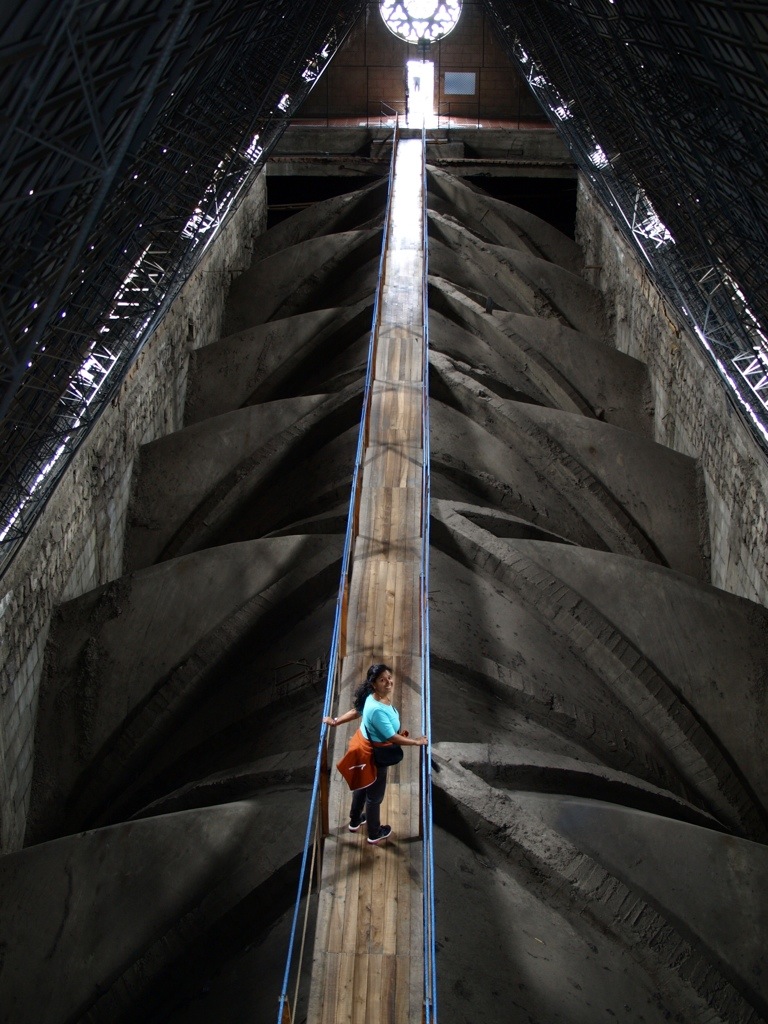
Each belfry housed three giant clocks, presumably so that no one would be late for mass. Though, not all of the clocks were working. (Great! There’s my excuse!) Inside each belfry was a gift shop and in one, a trendy little coffee shop. Flights of stairs inside the belfry transcended into spiral staircases, and then ladders the higher we climbed. We passed through the room of the clocks and nearly reached the bells before a pad-locked grate stopped us. Another view of the city showed us we were actually higher in the sky than when we’d climbed the spire.
Llamas, Sacagawea and The Beatles
Our visit to the Basilica had us flying high, but our plans for the next day put us in the clouds. Pichincha volcano is the closest of several semi-active volcanos that surround Quito. A taxi ride from our hostel took us to its base where we paid $8.50 each to ride the teleferico to the top.
Okay, not literally to the top. Turns out it takes 2 1/2 hours of additional hiking/climbing to reach the mountain’s true tippy-top. We hiked a small piece of it and found two handsome llamas, but we were not up to the challenge of making the longer climb. We were now at 13,000 feet. Our bodies were still trying to adapt to climbing the stairs to our room at the hostel down around 9,300. A hike of 5 hours (round trip) was out of the question.
From our chilly perch on Pichincha we surveyed Quito much like we had from the airplane two days earlier. We spotted the Basilica, the plaza, monuments, parks and other landmarks. Quito is a beautiful city.
Whenever I mention how much something cost here in Ecuador, I’m telling you in US dollars. No currency conversion is needed either because the local money is oddly….the familiar US  greenback. As it was explained to us, Ecuador experienced a colossal economic crisis in 1999. It was Ecuador’s “Great Depression.” In March of 2000 the Ecuadorian government made the bold and controversial decision to adopt the US Dollar as a means of stabilizing the country. Apparently, it worked! We just like that it makes it easy on our heads whenever we buy something. Of further curiosity, we figured out where all the Sacagawea dollar coins went.
greenback. As it was explained to us, Ecuador experienced a colossal economic crisis in 1999. It was Ecuador’s “Great Depression.” In March of 2000 the Ecuadorian government made the bold and controversial decision to adopt the US Dollar as a means of stabilizing the country. Apparently, it worked! We just like that it makes it easy on our heads whenever we buy something. Of further curiosity, we figured out where all the Sacagawea dollar coins went.
Later that day we met up with the sister of a friend of mine from Austin, Katie Stone (sister of Jamie Stone). She has been living and working (as a teacher) in Quito since last November. We were meeting her for the first time face-to-face, though we had been corresponding over email with her for 6 months. The day was Katie’s birthday and she invited us to hang out with her and her friends (some Ecuadorians and some from the states) that evening. We gladly accepted the invite and ended up having a great time at a place called BBQ; clearly styled after Buffalo Wild Wings. It was 2-for-1 prices on pitchers of Mojito Tea and we drank our share, not wanting to be rude, of course. Chicken wings and onion rings filled our plates and silliness filled the conversation.
We taught a couple of Katie’s Ecuadorian friends the meaning of the wonderful smack-talk line, “In your face!” Both of these friends (Gaby and Lorena) spoke English very well, but were somehow unfamiliar with this endearing phrase. Of great curiously to us was Gaby’s distinct British accent when she spoke English. She explained this was due to the influence of her first English teacher. (A real English teacher.)
Later into the evening, Gaby and Lorena invited us to come with them to see a Beatles cover band. WHAT!?! This was too good to pass up. There would even be a John Lennon – George Harrison theme to the setlist. We were all in!
What is your guess on how well they did?
Frankly, they were quite good indeed. They played Imagine, Revolution, I Am The Walrus, Strawberry Fields to name a few of John’s. Something, While My Guitar Gently Weeps, Here Comes the Sun and even Handle Me with Care (from the Traveling Wilburys) represented George’s talents. They played for two hours so obviously there were many more songs than those I just listed. Impressive also was their choice of playing several of the Beatles more obscure songs, thus demonstrating the band’s true passion for the music.
Cevichohos
The wings and rings were good, but not exactly authentic Ecuadorian cuisine. For this, we ventured out to Parque La Carolina on Sunday. It’s one of Quito’s major city parks and apparently the place to be on a Sunday. Ecuadorian families swarmed through every inch of that park providing us with plenty of local flavor. Some lines leading away from the food stands stretched 100 people deep. The longest lines weren’t for the funnel cakes, though that’s a good guess. They were for the Cevichochos. That’s a shortened term for Ceviche de Chochos. Ceviche roughly means “salad” and Chochos are a type of bean. Eureka! Solient Green is people and Cevichochos is bean salad. Yes, Ecuadorians will stand in really long lines for bean salad. Apparently, I will, too.
We found two types of beans in the cevichochos, neither of which am I able to name for you. One was about the size and shape of an M&M, but all white. The other was similar in size, but brownish and tasting roughly like a corn-nut. We learned the true secret of the cevichochos is all in the sauces. Once you wait and wait for your plate of cevichochos, you must wait again for your turn at the garnish table. There you’ll spoon-on some red sauce, some yellow sauce, and some oniony sauce that looks kind of like soup. Squeeze half a lime on top of everything, too. Don’t worry about your cevichochos getting cold while you are standing in the garnish line; it’s served cold from the start. You do get some heat from the pieces of pork and fried plantain they throw on top of your cevichochos… and from some of the sauces.
We were originally planning to stay just 2 days in Quito, but we loved it so much from the start we shuffled our schedule to gain an additional day. Why don’t more people visit Ecuador? They really should. Or, maybe it’s best to keep Ecuador a special little secret a little while longer, so Shhhh.
From here we’ll travel by bus to Tena, a smaller town right on the edge of the Amazon. Stay tuned…

